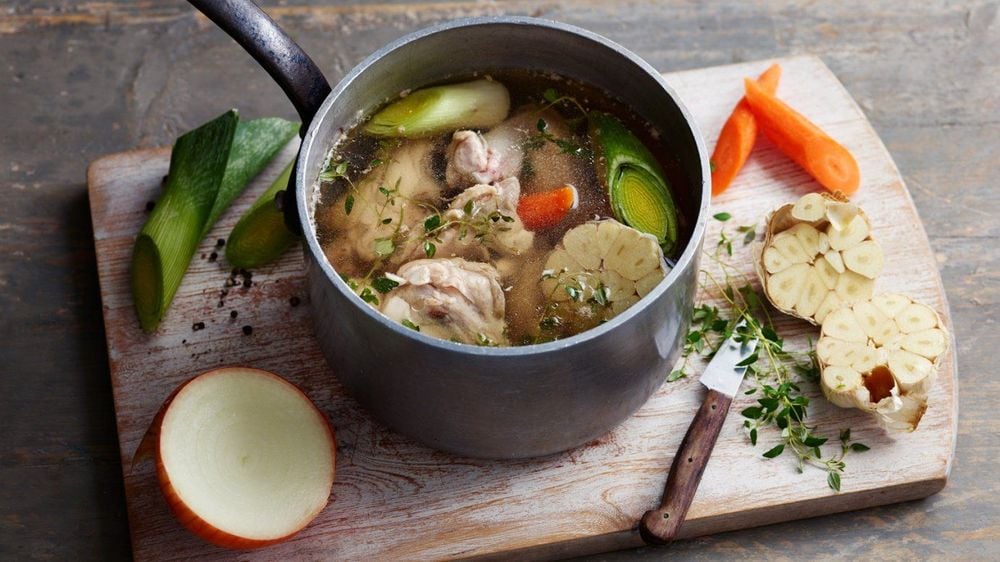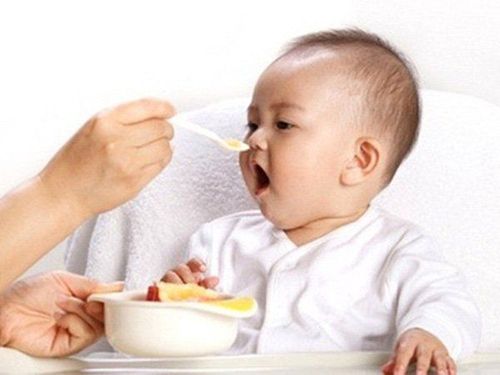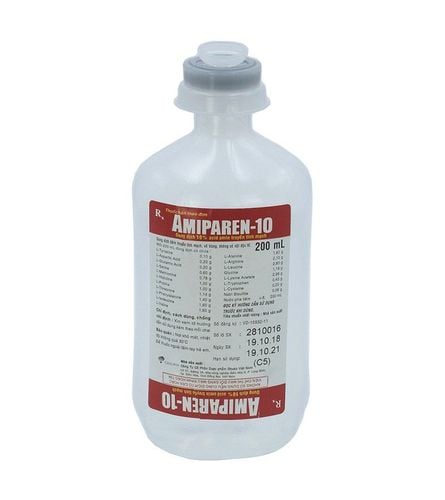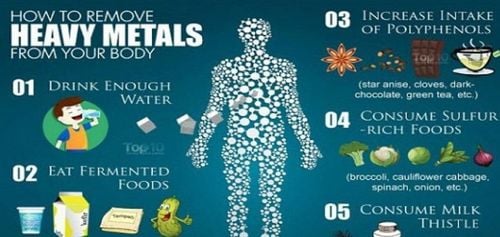This is an automatically translated article.
Is bone broth good for babies, should children eat bone broth not many parents who have children during the weaning period because many people used to use bone broth for babies to eat with other foods? porridge, soup.
Bone broth is made by simmering bones in water and possibly adding a spice or herb or vegetable. Bone broth is often used to make soups, porridges, soups or stews or as a broth to accompany dry dishes.
There are many types of water used to flavor dishes but bone broth is the most popular because many people consider it to provide many health benefits, aid with digestion problems and increase weight loss. strengthen the immune system , ... Especially , many parents use bone broth for baby food . But is it any good?
1. Is bone broth good for babies?
The composition of bone broth is studied to contain collagen, bone marrow, amino acids and minerals. These ingredients are extracted from slow cooking, long cooking, and the occasional addition of acid from vinegar or alcohol can help loosen and dissolve the ingredients in the bone broth.
Currently, there is not any evidence that consuming amino acids and minerals from bone broth is better than from other foods. So, whether bone broth is good for babies is actually still a matter of controversy.
Besides, the claims that collagen and bone marrow in bone broth bring many direct benefits to bones and joints are unfounded. Because when collagen enters the body, it is broken down into individual amino acids and minerals, ...
These amino acids and minerals can act like any other amino acid or mineral consumed. , but there is no evidence of a benefit of consuming amino acids and minerals from bone broth over other foods.
SEE ALSO: Nutrition pyramid for weaning children

Nước hầm xương cho bé ăn dặm có chứa các vi chất có lợi
2. Bone broth for baby weaning is very low in calcium and poor in nutrients
So far, the scientific research related to bone broth is still very limited. The earliest study from 1934, published in the Archives of Disease in Childhood, by British nutritionist Elsie Widdowson and Northern Irish pediatrician Professor Robert McCance, looked at the nutritional composition of bone broth. or bone and vegetable broth indicates that bone broth is very poor in nutrients. The addition of vegetables in the new bone broth increases the content of several important nutrients including potassium, calcium, magnesium and iron. Thus, the use of bone broth for weaning babies does not necessarily provide much calcium and other minerals that have long been known.
January 2016, TIME Magazine published an article titled “Science Can't Explain Why Everyone Drinks Bone Broth” (in many Western countries, bone broth is used as a drinks to fortify nutritional supplements, including children).
This article includes excerpts from interviews with many reputable scientists. Associate Professor William Percy, of the University of South Dakota's Sanford School of Medicine, said that the human body cannot fully absorb collagen, so consuming collagen from bone broth to promote bone growth is unwarranted. and can be meaningless because collagen is very poor in amino acids. Thus, using bone broth for baby food because it is not correct to believe that collagen will help children's bones develop.
Besides, Dr. Kantha Shelke - a food scientist and spokesperson for the Institute of Food Technology and Director of Corvus Blue LLC, a food science and research company, also said, A diet rich in green leafy vegetables is ideal, helping to build a richer source of collagen providing many nutrients not found in meat or bone broth.
MORE: Problems with weaning
3. Is bone broth for baby weaning harmful?
It can be seen that the research on bone broth is still very limited and there have not been any groundbreaking studies, especially the use of bone broth for weaning babies.
In addition to research on nutrient-poor ingredients, bone broth may also contain some potentially dangerous substances because in the body, bones are known to store heavy metals, especially lead. When cooking bone broth, lead can be released.
In 2013, British scientists conducted a small study on the lead content in chicken bone broth. The results showed that chicken bone broth contained 10 times more lead than broth alone. What was interesting in this study was that chicken bones from organically raised chickens contained the highest amount of lead. Thus, the use of bone broth for weaning babies should be carefully considered.

Cần cân nhắc trước khi sử dụng nước hầm xương cho bé ăn dặm
A 2017 study published in the Journal of Food and Nutrition Research also found that bone broth is very poor in calcium and magnesium, similar to the 1934 study. However, a recent study contradicts the research. A 2013 study found that the levels of lead and cadmium in bone broth were low.
Therefore, current claims about bone broth can be misleading. But in general, the nutritional content and effects of bone broth on health depends on the ingredients and cooking method.
Whether or not children should eat bone broth should be carefully considered because current research on bone broth is very limited, they are very low in calcium and nutrients, and may even contain harmful lead. Instead, mothers can use vegetable broth to provide necessary nutrients during the baby's weaning period.
For children to be healthy and develop well, it is necessary to have a nutritious diet in terms of quantity and quality balance. If children are not provided with adequate and balanced nutrients, it will lead to diseases of excess or lack of nutrients, which adversely affect the comprehensive development of children in terms of physical, mental and motor skills.
Children who do not eat properly are at risk of micro-mineral deficiency causing anorexia, growth retardation, malabsorption,... If they notice the above signs, parents should supplement their children with products. The supplement contains lysine, essential micro-minerals and vitamins such as zinc, chromium, selenium, and B vitamins to help fully meet the nutritional needs of children. At the same time, these essential vitamins also support digestion, enhance nutrient absorption, help improve anorexia, and help children eat well.
Parents can learn more:
Signs of zinc deficiency in children
Micronutrient deficiency and failure to gain weight in children
Please regularly visit Vinmec.com website and update useful information to take care of your child. Take care of the baby and the whole family.
Reference source: nutritionstudies.org













